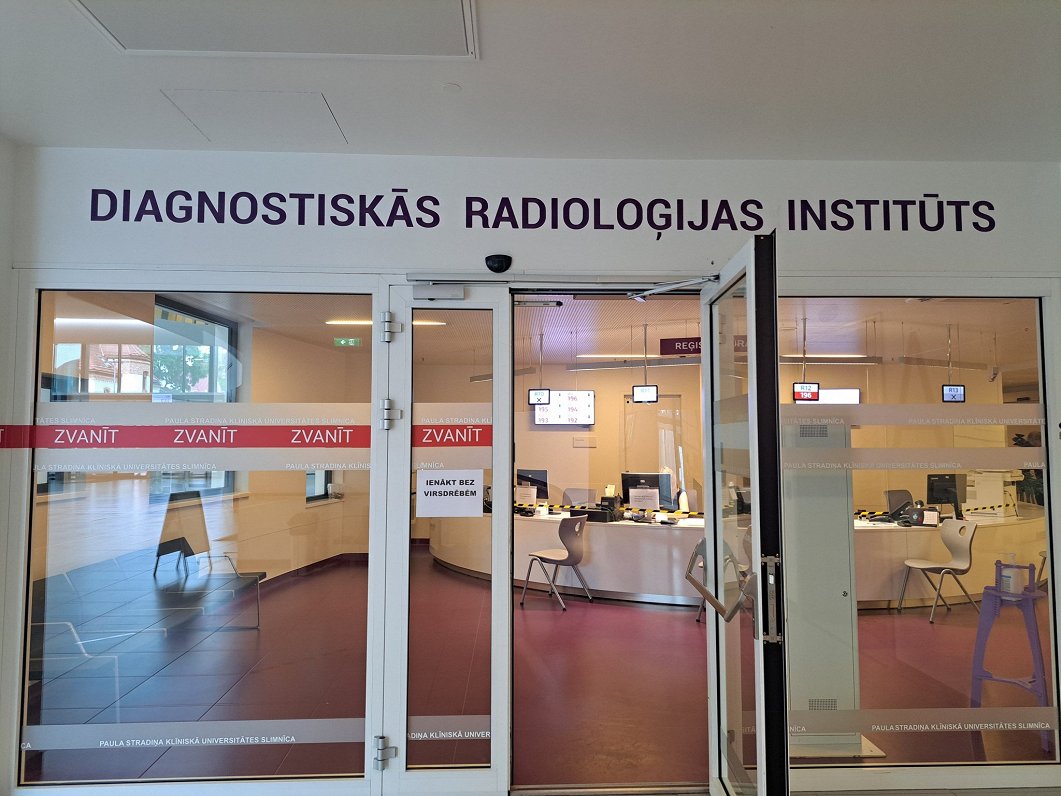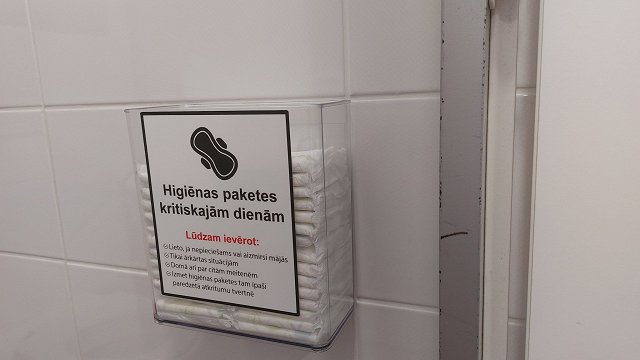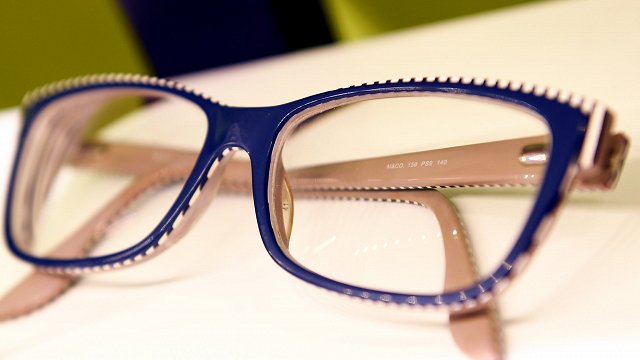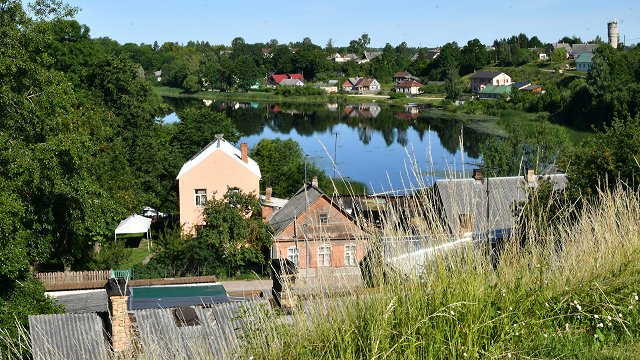This year, 125 people diagnosed with cancer have turned to the charity platform Ziedot.lv and the public. They need a total of EUR 3.2 million. The largest amounts are needed in 51 cases - the medicines for these people cost a total of EUR 2.7 million.
In 62 cases, tests are needed to determine the necessary therapy for breast cancer patients (€3,000 each) or to determine the most appropriate therapy (cancer gene test) - these people need €190,000. Eight more will need alternative therapies, four will need treatment abroad.
Mārīte
One of these people is Marija Bramane from Līvāni, known to everyone as Mārīte, and for her this year has been a real challenge: she lost her mum at the beginning of the year, then noticed a rapid weight loss, but at first, it seemed to be from stress. However, when her abdominal girth increased rapidly in the summer, she turned to her doctor.
She underwent tests and examinations - the result was stage 4 stomach cancer. How? She is a conscientious citizen who has her annual checkups, yet last November's tests showed nothing.
A panel of doctors has prescribed treatment, and a course of medication every three weeks costs just under €4,000.
The cost of Marija's life is €65,620. That is the amount needed for a year-long course of treatment to be able to continue living.
Although in Latvia the state reimburses this medicine for other diagnoses, and even then only partially, Mārīte does not meet the criteria set by the state.
Latvian Radio meets Mārīte near her two grandchildren's favorite playground, as it is the closest to her home, and with six chemotherapy treatments behind her, she needs to save her strength.
However, she does not hide some frustration with the state, as she now depends on peer support.
"We must not die out, the Baltic people, not like this. It's just that now there's some kind of division, sorting, and when I got the diagnosis, it disappears somewhere, it's unnecessary that everybody is tearing, dividing, sorting, that you're this, you're that. It's not pretty and it has no lasting value. I would love to still work and help people," says Marija Bramane.
Asked what she would like to do when her cancer is conquered, Marite says she wants to continue her heart's work and benefit others, as she is a masseuse with 27 years of experience. She also says that she is ready to share her experience further with others to reach out to patients with this diagnosis and that she has to learn to ask others for help.
She says that she must not rely on depressive thoughts, because when she entered the ward to receive another dose of chemotherapy, she noticed that it is women of strong character who are affected by oncology. All of them are united by hope and the will to live.
Maruta
One of these women is Maruta Castrova, who has been on the Ziedot.lv list for three years. Maruta was diagnosed with breast cancer more than five years ago. Over the years, she has experienced both improvements and flare-ups.
She suffered a severe pneumonia and a medical panel decided in favor of other medicines, which cost €4847.18 each month. This medicine is not included in the list of reimbursable medicines.
The cost of Maruta's life is more than €82,000, which would allow her to take the medicine for a whole year.
Maruta has now received four doses of the new medicine thanks to the support of her friends, donors, and family but has not received the medicine for a month and a half because she simply does not have the funds.
She says that although the first thing she did when she heard about the diagnosis was shock, she thought later that - no, we must not give up. For some time, she kept this difficult news from her children because she did not want to show her weakness. However, when her daughter was visiting her mother, she inadvertently saw a leaflet with the name oncologist on it, and everything became clear.
She also admits that it is very difficult to get help and ask for it, because she has always put the needs of others first and found solutions for them. When asked what she plans to do when her cancer is finally conquered, Maruta immediately replies that her dream is to build an observatory in Balvi together with the municipality, where everyone can come and be educated.
Around €150 million needed to add to the list of reimbursable medicines
Why do dozens of people have to seek help every year? This question was put to the National Health Service (NVS) by Latvian Radio.
Zinta Rugāja, Deputy Director of the Department of Medicinal Products and Medical Devices at the NVD, explains that in order to include any new medicines in the list of reimbursable medicines, an assessment of the cost-effectiveness of these medicines is required.
"If a diagnosis is included in the list of reimbursable medicines, or there is no medicine, a diagnosis is not included in the list of reimbursable medicines, or [..] a medicine is included in the list of reimbursable medicines, but for some reason, say, either due to intolerance or allergy, the patient cannot be prescribed this medicine. Then, within the cost of the medicine already included in the list of reimbursable medicines, the patient has the possibility to receive the medicine that he or she needs more," says Zinta Rugāja.
However, criterion 3 does not cover cases where the patient needs a different treatment option. The new rule states that they must be equivalent. This is why some people are denied reimbursement.
The National Health Service (NVD) has made it a priority to expand the list of reimbursable medicines. However, if cost-effective medicines are included and the state knows what it is paying for, in the case of individual reimbursement, there is no assessment of cost-effectiveness.
So, the broader the list of reimbursable medicines, the more people can get state-funded medicines. There are currently more than 70 medicines on the waiting list that could be included in the list of reimbursable medicines.
The amount needed to complete the list of reimbursable medicines is around €150 million.
Treatment abroad
There are two mechanisms for a person to receive treatment abroad that are paid for by the state, the first of which is the prior authorization or S2 form, or planned healthcare, which is issued in cases where a healthcare service that is paid for in Latvia is necessary to save a person's life and health and has been determined by a medical consortium. Such a service is not intended for experimental therapy.
Andreta Līvena, Head of International Cooperation at the National Health Service, explains how this service is paid for: "In this case, payment is made according to all the rules and tariffs of the country concerned. This means that the patient only pays for transport to the country and if there is a co-payment by the patient."
"The statistics we have collected for 2023, when 105 such forms were issued, of which 45, meaning almost half, were issued to Lithuania, where the most common service is allogeneic or non-familial stem cell transplantation and the various procedures, tests, donor searches, etc. that go with it. And 29 forms, or about a third, were issued to Germany for various specialized treatments, perhaps surgery or counseling," says Andreta Līvena.
The state budget paid €4.5 million for these services.
The second way of receiving support from the state is when a person decides to go to another EU country without needing any special authorization here in Latvia.
In that case, the person first pays for the service himself, then applies to the National Health Service, and then the money is reimbursed at the Latvian rate and for those services that are in the Latvian medical basket.
According to Andreta Līvena, a spokesperson for the NHS, this service is not in demand in Latvia, with only 19 applications last year from people who paid for medical services themselves.
Germany is the most popular country for Latvians to seek medical treatment, with a small number of applications also coming from Lithuania and Estonia. In total, the state paid €87 000 for this service. People have paid around €300 000 themselves. The average reimbursement is only around 30%.
A priority for the Ministry of Health is to increase the list of medicines reimbursed by the state, which would significantly help more people than at present.































